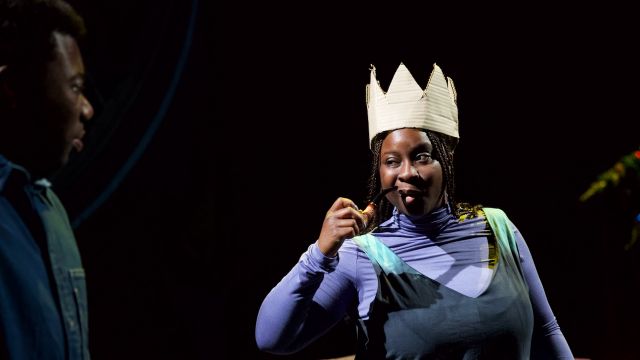La Belle Époque
Isioma (Effie Nkrumah) is engaged to Chris (Mike Ugo) – well, they live together in Melbourne, and she is pregnant. She wants them to marry, but Chris seems wary and there’s no way he can raise the traditional and expected dowry; he hasn’t even met her parents…
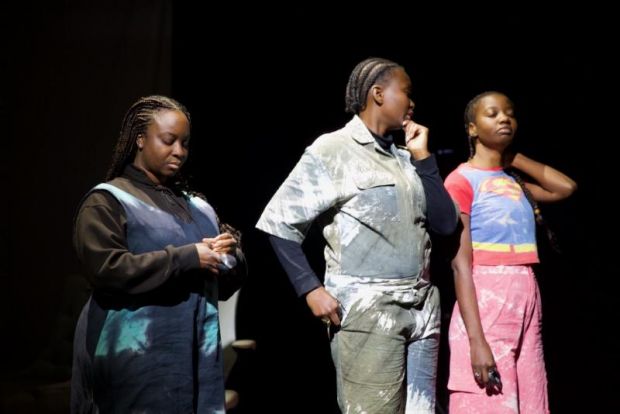
This complex love story, frustrated and complicated by traditions and traumas brought to Australia from Africa, is one strand of this cleverly interwoven play, the central purpose of which is to tell the tragic story of what’s known today as the Democratic Republic of Congo (DRC). Playwright Fidel D Future takes ‘La Belle Epoque’ to mean ‘the good old days’ and he asks when were the good old days for the Congolese people? There weren’t any - not since 1885 when Belgian King Leopold II declared the Congo his private property…
But La Belle Époque is saved from agit-prop or a history lesson by Isioma’s and Chris’s love story – and by the framing device of college student Bob’s (Kelly Kouakou) media assignment – a ten-minute video on… the history of the DRC. Bob is from Africa, but, together with a classmate (Tariro Mavondo) not really that engaged by the history – which throws the history itself into an ironic light. The DRC is not their country. They’re just in a hurry to get this assignment finished on deadline, and they’re already worried about the length…
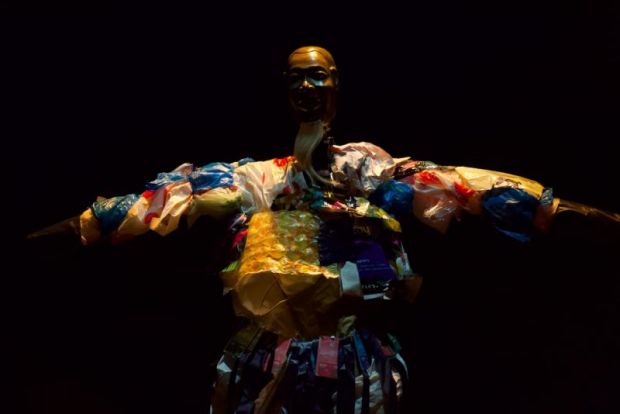
The history is an horrific catalogue of colonisation by Belgium, mass slaughter, slavery, torture, mutilation, Congolese mercenaries brutally enforcing Belgian control, plunder and pillage, vicious civil wars and, in the present, the West’s – and now China’s - exploitation of the DRC’s minerals and rare earths, essential to the manufacture of phones, computers, batteries… (People may remember that the Congo is the setting for Conrad’s Heart of Darkness in which the white coloniser, Kurtz, descends into illness and madness, unconstrained by ethics or morality.)
As Bob’s video unfurls on two big screens – unavoidable, on a loop - Isioma has inveigled Chris into being the presenter and narrator because he’s a refugee from the DRC and has the authentic Congolese accent. Chris is clearly, keenly aware of the history, but painfully reluctant to delve into the past – and also what he suffered in his own past…
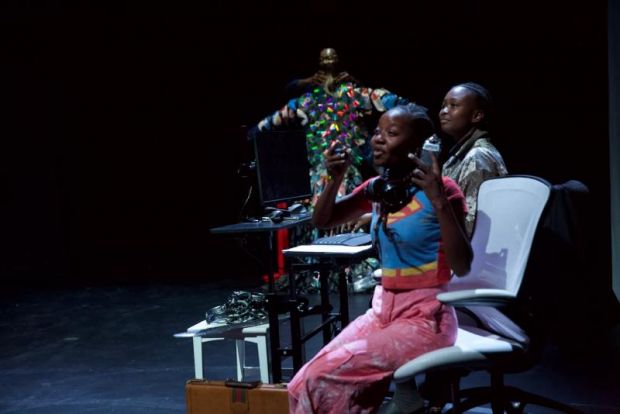
La Belle Époque is made all the more powerful and fascinating with its cast of four diverse African background actors, all crisply directed by Budi Miller. All of them are highly talented, intensely focussed, in the moment, fierce, so alive, touching and funny. You are completely held by these actors across the tight seventy-minute running time. Three of the cast play multiple roles. The hilarious but awful scene where Chris finally meets Isioma’s wealthy, non-Congolese parents (played by Mavondo and Kouakou – the latter quite fabulous as the father) reveals the complexity of the African diaspora - and our ignorance of it.
There’s an ironic throwaway line about African actors getting work in Australia – Neighbours is mentioned in an ‘as if’ kind of way. But what is any future for these performers? Not, one hopes, arbitrary ‘colourblind casting’, but material that displays their vitality and their reality.
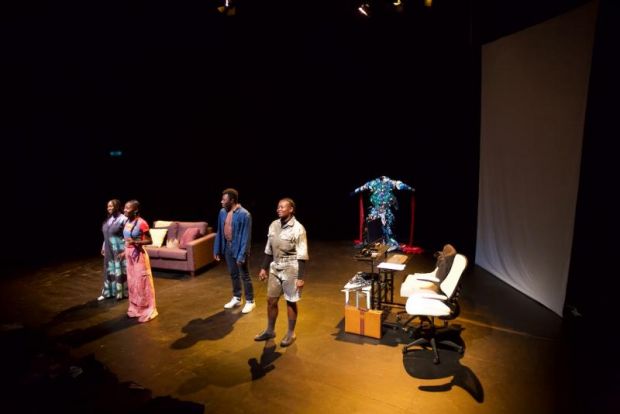
This play’s subject matter is challenging – to the extent that we may squirm in our seats – but this is an exciting night in the theatre – as was Future’s previous African cast work, The Prize-fighter. On the second night of La Belle Époque, there were maybe thirty people in the audience. It would be very sad indeed if this insight into another culture and the very high quality of writing and performance goes unacknowledged. It run till the 20th. Go see it.
Michael Brindley
Subscribe to our E-Newsletter, buy our latest print edition or find a Performing Arts book at Book Nook.

